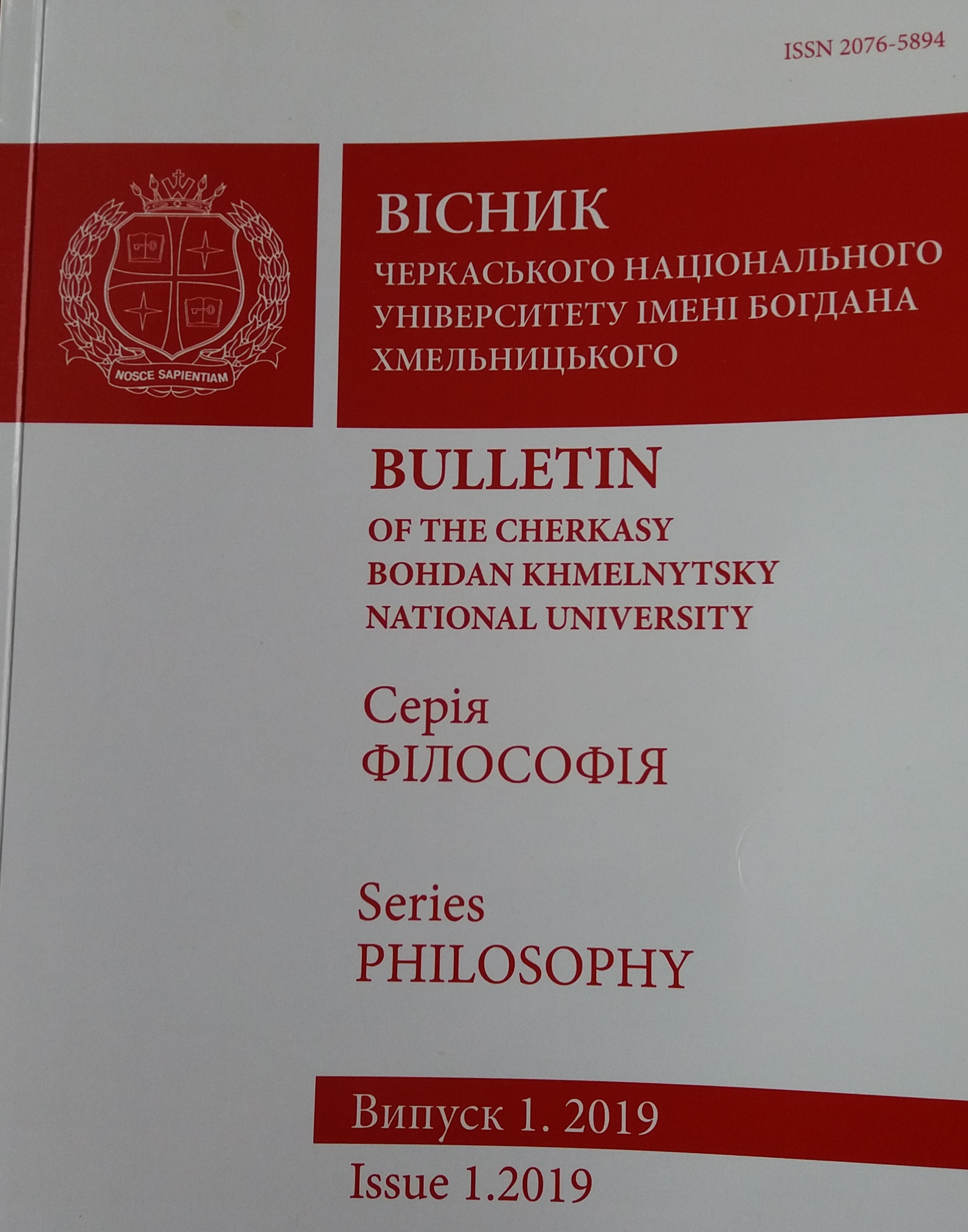I. OHIENKO’S TEACHING ON THE ROLE OF CHURCH IN THE PROCESS OF UKRAINIAN ETHNO- AND NATION-BUILDING
Main Article Content
Abstract
Summary. Introduction. The need to overcome the social polarization of Ukrainian society actualizes the comprehensive study of the intellectual heritage of those philosophers who were studying the formation of ethno-cultural and/or national unity of Ukrainians. The key point in this context belongs to the scientific work of I. Ohienko, who, without proper reflection, could become an element of a manipulative strategy that would deepen the split of the Ukrainian society.
The purpose of our study is to systematize and critically understand I. Ohienko’s thoughts concerning the role of the Orthodox faith and the church in the process of Ukrainian ethno- and nation-building.
Methods. The interdisciplinary approach and the principle of unity of the historical and logical have become the methodological basis of scientific research. In the process of comprehending I. Ohienko’s doctrine about the role of the Orthodox Church in the processes of Ukrainian ethno- and nation-building, the hermeneutic method has played an important role – it has given an opportunity to interpret the positions and conclusions made by the researcher in various scientific works. The method of categorical analysis, which provided explanations for terminological contradictions in the creative heritage of I. Ohienko, has proved fruitful and promising.
Results. In the course of a critical rethinking of the scientific heritage of I. Ohienko in his mature period, it has been discovered that the study of factors and tools for establishing the ethno-cultural identity of Ukrainians remained the cornerstone of the scholarly search for the philosopher. It has been proved that in the opinion of the thinker, the necessary conditions for creating the latter are a set of objective attributes (language, customs, ordinances, etc.) and psychological characteristics (emotionality, religiosity, etc.) that promote awareness of the cultural distinctness of the community.
Originality. The ethno-building potential of Ukrainian Orthodoxy through the perspective of I. Ohienko’s intellectual investigation has been revealed, and the role of ritual practice in the process of formation and preservation of ethno-cultural identity of the community has been shown.
Conclusion. Despite the rationality of a number of I. Ohienko’s theoretical observations concerning the cultural potential of the Ukrainian Church, it is accompanied by a non-critical identification of ethno-cultural and religious affiliation. In view of this, the intellectual heritage of the philosopher is of a great importance for explaining the process of Ukrainian ethno-building, but it cannot be used uncritically for the development of national strategies.
Article Details
References
Kozer, L. (2000). Functions of social conflict. Moscow: Ideya-Press (in Russ.)
Hrushevskyi, M. (1912 ). Cultural and national motion іn Ukraine in XVI - XVII centuries. Kyiv, Lviv: Druk. «S. V. Kulzhenko» in Kyiv (in Ukr.)
Ohiienko, I. (1968). Saving of Ukraine. On heavy service to the people. Vinnipeh: Volyn’ (in Ukr.)
Huntington, S. (2003). The Clash of Civilizations. Moscow: AST. Retrived from https://www.e-reading.club/book.php?book=61484 (in Russ.)
Bondar, S. (2005). Historiosophy of І. Lysiak-Rudnytsky in the context of nation-creative and state-creative processes in Ukraine. Kyiv: KNU (in Ukr.)
Briubeiker, R. (2006). Repainted nationalism. Status of nation and national question in new Europe. Lviv: Kalvariia (in Ukr.)
Bohomolets, O. (2017). Ukrainian home icon: monograph. Kyiv: Publishing House of Dmytro Buraho (in Ukr.)
Hibernau, M. (2012). Identity of nations. Kyiv: Tempora (in Ukr.)
Goyan, І., Storozhuk, S. (2016). The ethnic рrinciple as the basis of civil politics. Visnyk Cherkaskogo universytetu. Seria filosofia (Cherkasy University Bulletin: Series Philosophy), 1, 31-36.
Kreichi, Ya., Velimskyi, V. (2000). Ethnic and political nations in Europe. Nationalism: anthology, 308-310. Kyiv: Smoloskyp (in Ukr.)
Renan, E. (2000). What is the nation. Nationalizm: anthology, 253-263. Kyiv: Smoloskyp (in Ukr.)
Kryvda, N. (2017). Icon as one of the factors of the formation of Ukrainian ethnic identity. Visnyk Cherkaskogo universytetu. Seria filosofia (Cherkasy University Bulletin: Series Philosophy, 1, 3-11 (in Ukr.)
Storozhuk, S. (2013). Nation as object of historical and philosophical analysis: Kyiv. KNU (in Ukr.)
Fylypovych, L. A role of religion and church in integration of society. Retrived from https://risu.org.ua/ua/index/studios/materials_conferences/45678/ (in Ukr.)
Ohiienko, I. (Metropolitan Ilarion) (2001). History of literary Ukrainian. Kyiv: Our culture and science. Retrived from http://litopys.org.ua/ohukr/ohu.htm (in Ukr.)
Ohiienko, I. (1990). Essays on the history of Ukrainian. System of the Ukrainian spelling. Vinnipeh: Volyn’ (in Ukr.)
Hatchison, D., Smit, E. (2000). What is ethnicity. Nationalizm: anthology, 468-475. Kyiv: Smoloskyp (in Ukr.)
Lysiak-Rudnytsky, I. (1994). Forming of the Ukrainian people and nation (methodological issues). Historical essays, 1, 11-41. Kyiv: Osnovy (in Ukr.)
Ilarion, mytr. (Ohiienko, I.) (1956). A book of our existence on strange land (Save everything native!). Vinnipeh: Ukrainian Scientific Theological Society (in Ukr.)
Ohiienko, I. (1942). Ukrainian church. Essays are from history of Ukrainian Orthodoxy Church, 1. Praha. Publishing by Yu. Tyshchenko (in Ukr.)
Mytropolyt Ilarion (Ohiienko). (1995). Pre-christian beliefs of the Ukrainian people. Kyiv: Oberehy (in Ukr.)
Bayburin, A. K. (1985). Ethnic aspects of study of stereotype forms of behavior and traditional culture. Sovetskaya etnografiya (Soviet ethnography), 2, 36-46 (in Russ.)
Konnerton, P. (2004). As societies remember. Kyiv: Nika-Сenter (in Ukr.)
Chyzhevskyi, D. (1992). Essays on the history of philosophy in Ukraine. Kyiv: Orii. Retrived from http://litopys.org.ua/chyph/chyph02.htm (in Ukr.)

